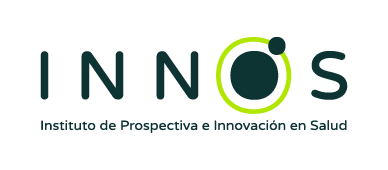
From the Institute for Prospective and Innovation in Health -INNOS- with the support of AFIDRO and El Bosque University, the webinar “Intersectoral Meeting: CONPES Analysis of Intellectual Property” was held, a space that allowed creating a dialogue from different perspectives around the draft CONPES on Intellectual Property.
Bogotá, July 2021-. In order to encourage the creation, innovation and transfer of knowledge, in addition to seeking growth in the country's productivity, the National Planning Department has been developing a draft of the CONPES of intellectual property, in order to consolidate the generation and intellectual property management, a key element to motivate a virtuous ecosystem for the generation of technology and innovation.
The document that raises five essential axes, among which are the generation and management of Intellectual Property, its protection, the effective defense of rights, training and awareness-raising and the institutional framework, seek to face great challenges in terms of the development of innovation in the country, taking into account that according to the Global Innovation Index (IGI), Colombia was ranked number 52 out of 100 countries evaluated. Furthermore, in the words of Juan Pablo García, deputy director of CTI of the National Planning Department, "since 2010 a document of this style has been awaited."
That is why leaders and experts from academy and the private sector invited to give a special role in this policy to the role of creators, in such a way as to motivate the generation of ideas that, when materialized, may contribute to growth and development of the country. At this point, they have also pointed out the importance of focusing investment towards development, since it is in this way that patents for technologies and innovations can be put on the market and taken advantage of.
“Intellectual property assets are generated within universities that have very low levels of development and that require the effort of the entire ecosystem for them to materialize. What we need is for these innovations to be activated so that they can generate the economic value that is required, ”says Aida Fúquene, coordinator of IP management and knowledge transfer at the National University.
In the same way, they state that it is important to understand that the processes of innovation and human creativity are spontaneous in nature, which requires flexible institutions that can be quickly evaluated and adjusted to scientific and technological advances, allowing solutions to be generated for different problems of the country. In addition, they add that intellectual property processes should be accessible and known to all Colombians.
“It is essential to train in intellectual property. First, so that a culture of respect for intellectual property is created and maintained. Second, so that it is understood that it is not only a matter for lawyers, but that it can be created from any profession and, third, because there is a need for intellectual property managers who are able to identify it and thus manage to focus it towards development scenarios", adds Juan Carlos Suárez, director of the Link Innovation Legal Office of the HUB iEX of the Bosque University.
Finally, the experts left on the table some more points that the National Government should take into account before ratifying and finalizing the intellectual property policy, such as the adequate identification of all the actors in the system and their capacities in terms of production. , respect and management of intellectual property, involving a continuous analysis of the capacity for intellectual production and the evaluation of the national environment.
“The discussion about this CONPES must be much more open and visible. Migrating to Colombia made the achievement of a country stronger and more determined in the knowledge economy, which does not depend only on extraction, it must necessarily go through a strengthening of Intellectual Property ", concludes Carlos Felipe Escobar, director of INNOS.
* If you want to participate in this conversation and learn more about CONPES on Intellectual Property, follow the official INNOS channels or enter the following link:
https://www.youtube.com/watch?v=B_RtoTWi8Hc&feature=youtu.be





